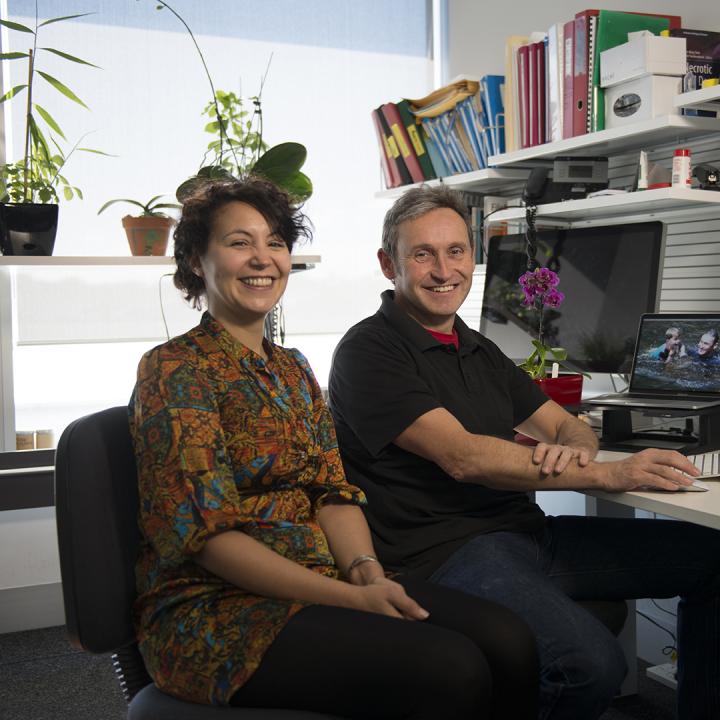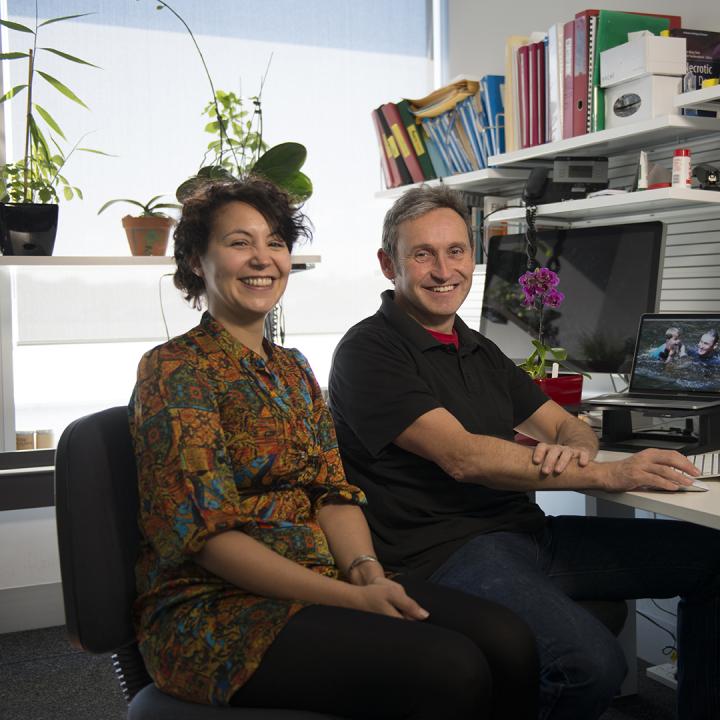
Credit: Walter and Eliza Hall Institute
An international research team has found a way to improve the anti-cancer effect of a new medicine class called 'Smac mimetics'.
The team discovered how a protein called MK2 helps to keep cancer cells alive, making them resistant to the anti-cancer effects of Smac mimetics. The findings provide a rationale for combining inhibitors of MK2 with Smac mimetics as a potentially powerful new combination therapy for cancers with few treatment options, such as acute myeloid leukaemia (AML).
The research, recently published in the journal Molecular Cell, was the outcome of a research collaboration between Dr Najoua Lalaoui, Professor John Silke and colleagues at the Walter and Eliza Hall Institute, Australia; Professor Pascal Meier and colleagues at the Institute of Cancer Research, UK; and Professor Manolis Pasparakis and colleagues at the Cluster of Excellence CECAD at University of Cologne, Germany.
Dr Lalaoui said the research helped to advance her team's previous discovery that combining the Smac mimetic agent birinapant with another new class of anti-cancer agents, called p38 inhibitors, could offer a new approach to treating AML.
"We knew these two agents could be combined, but didn't fully understand the how they worked together at the molecular level," Dr Lalaoui said.
"This latest study has pinpointed the MK2 protein as critical for the combination of Smac mimetics and p38 inhibitors to have a potent anti-cancer effect. As well as understanding our previous discovery better, it also highlights MK2 as an exciting new target for anti-cancer therapies, particularly in combination with Smac mimetics."
Professor Silke said the research was part of a growing trend in the field, taking 'rational' approaches to treating cancer better, particularly through selecting combinations of anti-cancer agents.
"By understanding precisely which molecules are helping cancer cells to survive and evade treatment, we can develop smarter ways to kill these cells," Professor Silke said.
"In the first place, the rational development of combination therapies has the potential to provide new treatments for cancers, such as AML, that have previously had poor outcomes."
He said another potential benefit of combined anti-cancer therapies could be using each agent at lower doses.
"With a combined approach, the agents could still kill the cancer cell but with fewer harmful side effects on healthy tissues. Our goal is to develop cancer treatments that are both safer and more powerful than are currently available" Professor Silke said.
###
The research was supported by the Australian National Health and Medical Research Council, the Victorian Cancer Agency, the Victorian Government Operational Infrastructure Support Program, Breast Cancer Now, World Wide Cancer Research, the UK Medical Research Council and the European Research Council.
The Walter and Eliza Hall Institute is the research powerhouse of the Victorian Comprehensive Cancer Centre, an alliance of leading Victorian hospitals and research centres committed to controlling cancer.
Media Contact
Vanessa S. Solomon
[email protected]
61-431-766-715
Walter and Eliza Hall Institute
Peter Kohl
[email protected]
49-0221-478-84043
University of Cologne
Ben Kolb
[email protected]
44-020-7153-5359
44-075-9596-3613
Institute of Cancer Research
Original Source
https://www.wehi.edu.au/news/combination-approach-improves-power-new-cancer-therapy
############
Story Source: Materials provided by Scienmag





